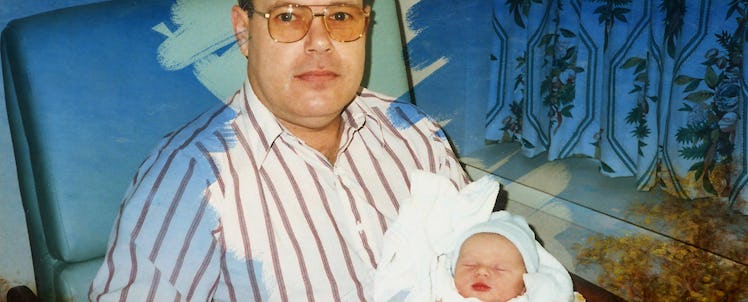Mothers Are Not Innately Better Parents. Tell That To The Divorce Court.
If we value dad's involvement while the parents are living together, why withdraw our support and deprive the child just because the parents no longer live together?

Dr. Richard A. Warshak is a past clinical professor of psychiatry at the University of Texas Southwestern Medical Centre at Dallas. His studies appear in 17 books and more than 80 articles on the psychology of alienated children and the impact on children of divorce, remarriage, and relocation. He consulted to the White House on child custody, consults and testifies internationally in child custody proceedings, appeared in the PBS documentary Kids And Divorce, and is the author of Divorce Poison: How to Protect Your Family from Bad-Mouthing and Brainwashing.
- Children under four (some say under six) don’t need to spend time living with only one parent, when their other parent is also loving and attentive.
- Research shows that children form relationships with more than one caregiver that are independent in the sense that the relationship with mom is not a template for that with dad.
- After separation, both parents should maximize the time they spend with their young children, including sharing overnight parenting time.
A growing awareness that children do best with two parents, whether parents are living together or separated, has led to a trend toward shared parenting among divorced parents. Yet some holdouts believe that shared parenting, appropriate for older children, is ill-suited to meet the needs of young children. Increasingly, data suggest that these holdouts are wrong.
Our society maintains a curious double standard when it comes to encouraging hands-on parenting. It’s understood that it is good for dads be involved with their infants and toddlers — diapering, feeding, bathing, putting to bed, soothing in the middle of the night, cuddling in the morning. But that norm disappears after parents separate. Many parents and judges believe it is best for young children to spend every night in one home, usually with mom. The result is the common practice of custody plans built around a single home, forcing fathers to see squeeze their relationship with their children into two-hour increments. Hurriedly loading and unloading the child in the car and driving to and from dad’s home at the end of a workday hardly lays a good foundation for a comforting and secure relationship with dad.
Fortunately, science offers clear guidance on these issues. I spent two years reviewing the relevant scientific literature and vetting my analyses with an international group of experts in the fields of early child development and divorce. My report, Social Science and Parenting Plans for Young Children: A Consensus Report, was endorsed by 110 of the world’s leading researchers and practitioners, reflecting a groundswell of concern among experts that misinformation is impoverishing custody decisions and public policy.
This story originally appeared in a different format on the Child & Family Blog, transforming research on cognitive, social, and emotional development and family dynamics into policy and practice.
I have found no support for the idea that children under four (some say under six) need to spend all or nearly all their time living with only one parent, when their other parent is also loving and attentive. Warnings against infants and toddlers spending overnight time with each parent are inconsistent with what we know about the development of strong positive parent-child relationships. Babies and toddlers need parents who respond consistently, affectionately, and sensitively to their needs. They do not need one parent’s full-time, round-the-clock presence.
To maximize infants’ chances of having a secure lifelong bond with both parents, public policy should encourage both parents to actively participate in daytime and overnight care of their young children. Scholars who study the benefits of children’s relationships with both parents find no empirical support for the belief that mothers are more necessary or play a more important role than do fathers in their infants’ and toddlers’ lives. In short, after their separation, both parents should maximize the time they spend with their young children, including sharing overnight parenting time.
How did public policy and the direction of custody decisions go so wrong? It seems related to the legacy of the “motherhood mystique,” the idea that mothers are innately better suited to care for young children. This was reinforced initially by John Bowlby, the father of attachment theory. Bowlby put forward the notion that infants form enduring affectional ties with just one person, normally the mother, before all other relationships and that this relationship ranks higher than and serves as a template for other relationships.
A number of studies have examined this hypothesis to see if it reflects infant experience. The research shows that children develop multiple relationships at around the same time. They form relationships with more than one caregiver that are independent in the sense that the relationship with mom is not a template for that with dad. Even John Bowlby came to recognize later in his career that infants form multiple attachments. These relationships cannot be ranked in importance.
It is time to resolve our ambivalence and contradictory ideas about fathers’ and mothers’ roles in their children’s lives. If we value dad reading Goodnight Moon to his toddler and soothing his fretful baby at 3 AM while the parents are living together, why withdraw our support and deprive the child of these expressions of fatherly love just because the parents no longer live together, or just because the sun has gone down?